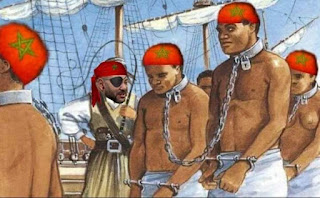No Excuse. A Crime, Is A Crime! لا عذر. جريمة ، هي جريمة
When the entire regime apparatus, is an involved accomplice in crimes against humanity, we call it by its appropriate legal criminal name. " A fascists Barbarian- Systeme". Or "Nostra causa". But when the world's capitals, politicians, and intellectuals, and their national medias, are involved witnesses without a due care nor an objective reaction, in silence, we call them '' The intentional- imperialists criminals". Pretending to be civilized, while preaching civility, and the respect of human rights charter boosting above the " the 3rd world injustice of tyrannical agents". Occupied and concerned with their own political affairs, elections, and social economies improvements of their lots, and constituents. Knowing well of the exacted suffering, and the miserable conditions of depravations, they have caused to the unfortunate massacred societies, through the residues of their greedy institutions, and the crimes of their savage occupational armies. Today we hold the guilty history, and its players responsible for the prevailing chaotic states, and standards. and doing by their post-colonial eras, and its invasions. We have inherited tyrannical regimes due to the pedophile criminal's lobbyists, paroxysm, and the protected imperialists satellites, and their dogs, who are purring the badly needed resources into the coffers of their protectors' masters. Today, we are searching for solutions, in order for us to remedy the catastrophic tragedy, and the causes of its revolutions. Your imputed thoughts are highly appreciated. Thank you. By Richard Azzouz. 10/30/22. Florida.
''Many nations formerly with absolute monarchies, such as Jordan, Kuwait, and Morocco, have moved towards constitutional monarchy. However, in these cases the monarch still retains tremendous power, even to the extent that by some measures, parliament's influence on political life is viewed as negligible.[a][19][20][citation needed]
In Bhutan, the government moved from absolute monarchy to constitutional monarchy following planned parliamentary elections to the Tshogdu in 2003, and the election of a National Assembly in 2008.
Nepal had several swings between constitutional rule and direct rule related to the Nepalese Civil War, the Maoist insurgency, and the 2001 Nepalese royal massacre, with the Nepalese monarchy being abolished on 28 May 2008.[21]
In Tonga, the king had majority control of the Legislative Assembly until 2010.
Liechtenstein has moved towards expanding the power of the monarch: the Prince of Liechtenstein was given expanded powers after a referendum amending the Constitution of Liechtenstein in 2003, which led the BBC to describe the prince as an "absolute monarch again".[22]
Current absolute monarchies"




Comments
Post a Comment